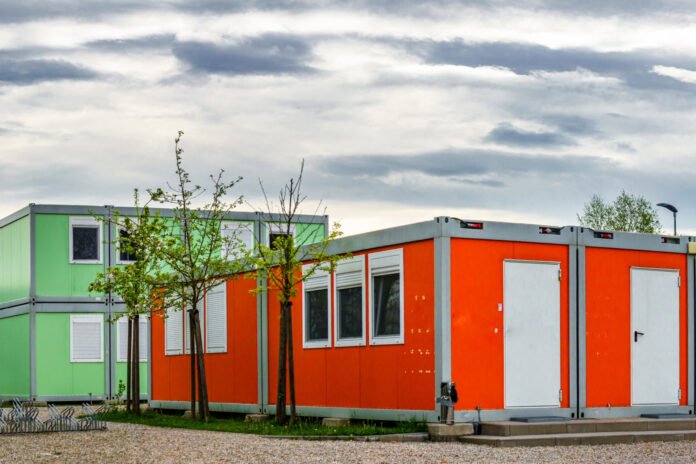David Desbiens never envisioned himself living in a tiny home. Yet, after facing unforeseen challenges that led to a period of homelessness, Desbiens found a new lease on life in a unique living arrangement: a converted shipping container nestled in a tiny home village in Gatineau, Quebec.
The Journey to Tiny Living
Desbiens’ story began in September when he and his girlfriend and daughter lost their rental home to a new property owner. Seeking refuge, Desbiens found himself in a shelter, separated from his family—a heart-wrenching situation that many families unfortunately face. Following four challenging months, he relocated to a tiny home, one of 45 constructed by Transitiôn Québec, an organization dedicated to addressing homelessness in the region.
The tiny home village, designed to provide immediate relief to those in need, stands as a symbol of resilience and ingenuity. As Nancy Martineau, the executive director of Transitiôn Québec, shared with the Ottawa Citizen, the village is poised to assist approximately 100 individuals experiencing homelessness by the end of May. The development plans for communal kitchens and laundry facilities, set to open in spring, signify a commitment to fostering a supportive community.
A Sense of Belonging and Stability
Upon entering his tiny home for the first time, Desbiens expressed immense relief and happiness, stating, “I was happy. Everything was there. I have all the stuff I need.” His positive response is indicative of the impact that stable housing can have on individuals facing difficult circumstances. The initiative not only offers physical shelter but also the emotional comfort of having a place to call home.
While Desbiens’ new living arrangement undoubtedly alleviates immediate concerns, it raises important questions regarding long-term solutions to homelessness. Experts from the University of Southern California’s Center for Health Journalism emphasize that tiny home villages must connect residents with case workers, provide private bathrooms, and offer opportunities for residents to stay beyond short-term arrangements for these initiatives to be sustainable and effective.
A Comprehensive Approach to Support
Fortunately, Transitiôn Québec’s model addresses these concerns. Each tiny home comes equipped with a private bathroom, essential for personal dignity and comfort. More importantly, the organization provides personalized psychosocial support to residents, recognizing the multifaceted challenges faced by individuals experiencing homelessness. Residents are also allowed to stay in their homes for up to five years with possible extensions, fostering a sense of stability that is crucial for personal growth and development.
Moreover, the environmentally conscious approach of repurposing shipping containers for housing not only saves money but also supports sustainability efforts. By utilizing available resources, Transitiôn Québec is paving a way for a greener future while combating homelessness.
Looking Ahead with Hope
As Desbiens settles into his new surroundings, he sees the possibility of building a better life for himself and reconnecting with his family. He’s contemplating completing his high school diploma and feels a renewed sense of motivation. “I have more motivation in the morning, and I can sleep better at night,” he shared with the Ottawa Citizen. With a stable home environment, he is now focused on pursuing job opportunities, signaling a pivotal moment in his journey.
Desbiens’ experience exemplifies the profound impact that innovative housing solutions can have on individuals navigating the complexities of homelessness. The hope is that initiatives like the tiny home village in Gatineau will inspire similar projects elsewhere, expanding the reach of support for those in need.
Conclusion: A Sustainable Solution in Sight
Transitiôn Québec’s initiative is a testament to what can be achieved when communities come together to address homelessness with compassion and foresight. By continuing to provide essential support and adaptable housing solutions, we can hope for a future where more individuals like David Desbiens can find stability and begin anew. As the conversation around homelessness evolves, it becomes increasingly vital to advocate for sustainable solutions that genuinely uplift individuals and foster long-term success.
As we reflect on Desbiens’ journey, we can all take action to support sustainable homelessness solutions, whether it’s through advocacy, community support, or simply staying informed about initiatives that create positive change. Join the movement toward a world where everyone has a place to call home.
For more tips on sustainable living and insights into helping our planet and communities, subscribe to our newsletter and explore ways to engage meaningfully in your own neighborhoods.














